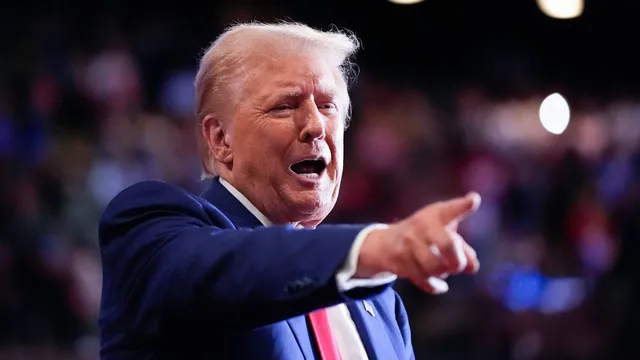
Trump lawyers argue immunity in Jan. 6 pressure campaign case
2024-09-20 14:07- Trump's lawyers claim his pressure on Pence qualifies as official conduct, granting him 'absolute' immunity.
- They argue that the prosecution is withholding exculpatory evidence and seek broader discovery from the Justice Department.
- The defense maintains that Trump's actions were not criminal and reflect his independent judgment as president.
Express your sentiment!
Insights
In a recent filing, lawyers for former President Donald Trump argued that his alleged pressure campaign on former Vice President Mike Pence during the January 6, 2021, insurrection should be considered official conduct, thus granting him 'absolute' immunity. They claimed that the prosecution was suppressing exculpatory evidence that could support Trump's defense, asserting that he genuinely believed the 2020 election was 'stolen.' The defense also sought a broader scope for discovery, demanding that all relevant evidence from the Justice Department be made available. The lawyers referenced a Supreme Court ruling that found Trump has at least 'presumptive immunity' regarding his discussions with Justice Department officials. They contended that the allegations against Trump were exaggerated and that he was acting within his rights as president. The special counsel, however, argued that Trump’s claims of election fraud were false and that he was aware of this, which could undermine his claim to immunity. The defense's motions included a request for the prosecution to honor extensive discovery requests, emphasizing the importance of transparency in the legal process. They argued that the prosecution's reliance on certain officials' judgments was selective and biased, suggesting that Trump’s actions were not criminal but rather a reflection of his independent judgment as elected leader. As the case progresses, the implications of these arguments could significantly impact the legal proceedings surrounding the January 6 events, particularly regarding the boundaries of presidential immunity and the accountability of public officials.
Contexts
As the 2024 election approaches, Donald Trump continues to assert that he won the 2020 election, fostering distrust among his supporters. This situation is compounded by polls indicating that many Republicans view Trump as a credible source for election information, while a majority of Democrats accept the election results. This divide raises concerns about potential unrest and a legitimacy crisis if the upcoming election results are contested. In light of these tensions, Trump's legal team is arguing for immunity in the case related to the pressure campaign surrounding the January 6 events. This legal strategy may be influenced by Trump's ongoing claims about the 2020 election and the implications of those claims for his supporters. Additionally, Trump's recent assassination attempt during a rally in Butler, Pennsylvania, highlights ongoing security challenges faced by the Secret Service. Communication failures between the Secret Service and local law enforcement contributed to the incident, raising questions about the adequacy of Trump's protection. Following these events, House Republicans are fast-tracking a bill to enhance Trump's Secret Service protection, citing mismanagement rather than funding issues as the root cause of security failures. This political backdrop, combined with Trump's legal battles and financial scrutiny, creates a complex environment as he navigates the upcoming election.